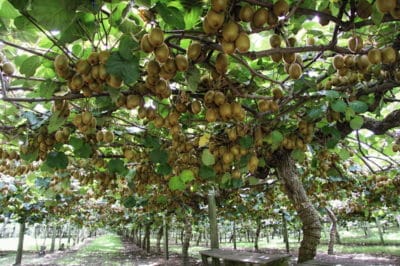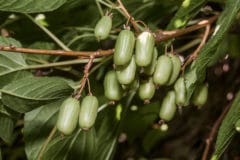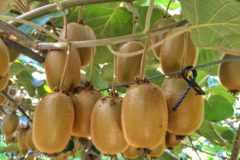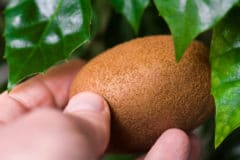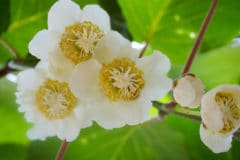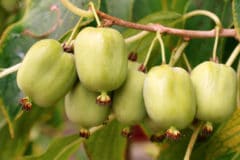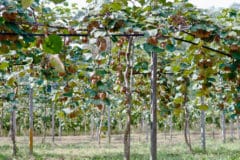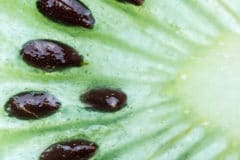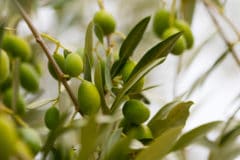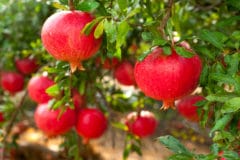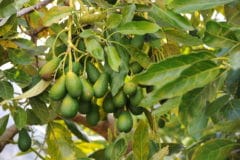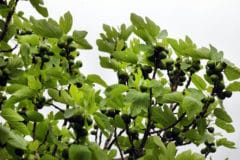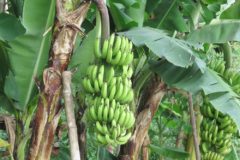Kinds of Kiwifruit
Kiwifruit fall into two main groups. The first is the most common commercial variety, Actinidia deliciosa. Actinidia chinensis is similar but less commonly grown. These are the familiar fuzzy fruits with green interiors that grow in temperate regions. The second group – hardy kiwifruit – includes Actinidia arguta and Actinidia kolomikta. Some of these can be grown in extremely cold climates.
Choosing Varieties
With more than 60 options, you can probably find a kiwifruit that’s right for your climate. Try these:
- Hayward – top commercial variety
- Saanichton 12 – slightly hardier than Hayward
- Blake – smaller fruit but self-fertile
- Ananasnaya or Anna – hardy; slight pineapple flavor
- Issai – Japanese cultivar
- Ken’s Red – from New Zealand; reddish fruit when ripe.
Climates for Kiwifruit
Given the wide range of cold-tolerance in kiwifruit varieties, you can grow this vine in many different climates. The common commercial varieties generally do best in USDA Zones 7 to 11, although some can tolerate temperatures of 114°F (45°C) and can be grown in desert areas with plenty of water. Cold-hardy kiwifruit will grow in areas as cold as those in Zone 3.
Hardiness in Kiwifruit
Commercial kiwifruit need a certain amount of winter chill, usually between 600 and 700 hours below 45°F (7°C). However, they also need a frost-free growing season between 225 and 245 days long. Exposure to temperatures below 10°F (-12°C) in winter can kill young vines. A spring frost of 30°F (-1°C) will kill the new shoots. Some cold-hardy kiwifruit can tolerate -40°F (-40°C).
World Production of Kiwifruit
China is the largest commercial producer of kiwifruit, growing slightly over half the world’s crop. Italy, Japan, France, Chiles, Spain, Greece and Israel also produce kiwifruit commercially. Israel is the largest producer in the group. In the US, California is the prime growing area for kiwifruit, although Oregon, South Carolina, Florida Texas and Louisiana also grow the fruit.
Growing Kiwifruit
If you want to grow kiwifruit, be prepared to spend money on heavy trellising systems. They are tolerant of most soils with good drainage, but prefer slightly acid soils. The massive leaf canopy requires large quantities of water in the growing season. You will need both male and female plants; one male can pollinate up to eight females. Harvest season is usually late fall to early winter.
